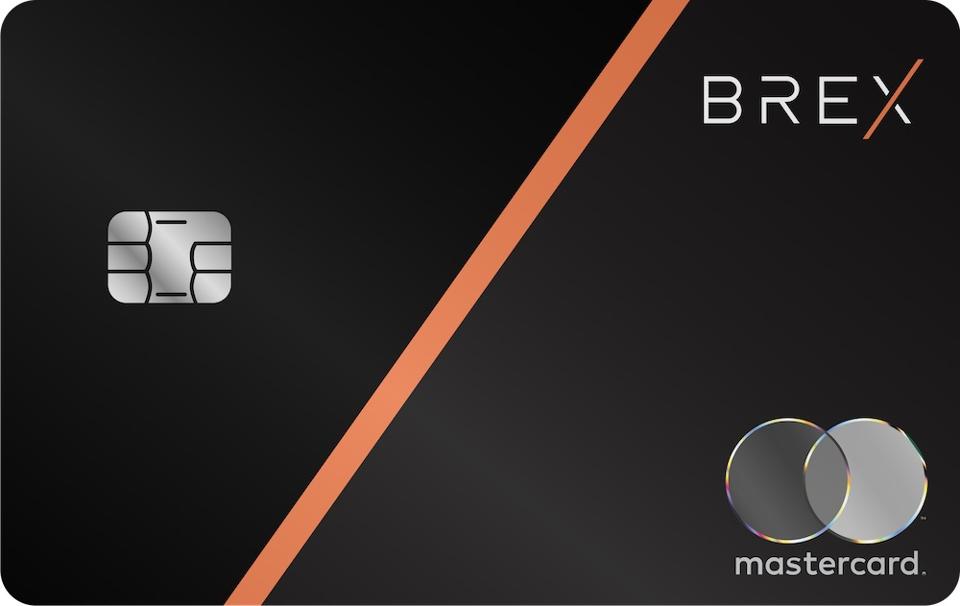Owners of new businesses with significant expenses, recurring revenue, and capital in the bank face the same persistent conundrum: should expenses be charged directly to the business’ bank account or rather to their own personally guaranteed small business or consumer cards?
If expenses are withdrawn directly from a bank account, then the business owners miss out on valuable rewards and lose cash flow flexibility. If, however, expenses are charged to a personally guaranteed card, then owners run the liability risk of deferring or, in a worst case scenario, forfeiting reimbursement if funds begin to dry up or authorized users misuse their credit lines.
Enter the Brex card, the best business card you’ve never heard of. The no annual fee Mastercard uses an innovative model to provide its cardholders with lucrative rewards while absolving them of personal liability risk – much like corporate cards do for substantially larger and more established businesses. (Note: we don’t have an affiliate link for this card.)

As a fixed redemption cash back card, the Brex card offers competitive category spend bonuses that elevate it into a compelling option even without the personal guarantee requirement benefit.
Breaking It Down:
Brex Card Rewards Program Overview
Brex’s approach to bonus categories relative to its competition is to go wide on categories and deep on uncapped earnings: 7x on Uber, Lyft, and taxis; 4x on travel; 3x on dining; 2x on recurring software expenditures; and 1x on all other purchases.
When originally launched, Brex offered 3x for travel expenses in addition to dining, though Brex now requires all travel charges to be booked through its own travel portal to earn bonus points, a higher 4x rate. Points can be redeemed at a rate of one cent per point as either statement credits or for travel via the Brex travel portal.

Because of their points’ redemption and transfer flexibility, the Ink Business Preferred Credit Card — which earns 3x Chase Ultimate Rewards on travel, advertising, shipping, internet, cable, and phone– is capped at $150,000 per year.
Same for the American Express® Business Gold Card — which earns 4x Membership Rewards on two selected categories from direct airfare, advertising, hardware and software, gas, dining, and shipping — is also capped at $150,000 per year. Those two cards likely provide higher relative reward value than Brex to most small business owners even when accounting for annual fees. So who then is the Brex card the right primary option for?
Quirks of the Brex Card
Brex, first and foremost, is a charge card. Those seeking to finance purchases to grow or seed their businesses should seek out working capital loans or small business credit cards with low promotional interest rates (e.g. the Chase Ink Business Cash Card currently offering 0% intro APR on purchases for the first 12 months).
Brex directly links to its cardholders’ banks, which serves it multiple purposes. First, direct linkage enables Brex to automatically withdraw cash from its customers’ accounts. If the cash in the bank is insufficient to cover the relevant period’s charges when the due date arrives, the card is immediately canceled.
Furthermore, directly linking to bank accounts provides insights into the financial health of its customers that other card issuers typically don’t have access to, enabling it to offer a unique underwriting process that need not rely upon standard credit reporting. Last, and perhaps most limiting, Brex requires that all card eligible expenditures be made exclusively via its own card in order for its business customers to earn more than 1x per dollar spent on bonus categories, effectively locking in its cardholders seeking full reward value.
Who is Eligible to Open a Brex Card
Brex limits eligibility to US based corporations and non-individual liability companies. As such, sole proprietors are out of luck. Approval odds and credit limits are determined by cash in the bank, company spending patterns, and sales data. This unique intelligence allows Brex to make smarter underwriting decisions and provide significantly higher credit limits to some cardholders, up to $5 million in certain instances.
The Upshot
Brex is not your father’s small business credit card. Similar to what SoFi did in the home mortgage and student loan arenas, Brex is leveraging a different set of data than what card issuers have traditionally used to evaluate creditworthiness in the business credit card space.
Though the uncapped rewards are competitive and the prospect of potentially much higher credit limits is attractive, these are not the features that set the card apart. The key unmet need that the Brex charge card fulfills is allocating liability to businesses in lieu of to individual cardholders. This important target market of business owners at startups, e-commerce firms, and well capitalized small businesses now have an option to alleviate the pain point of having to take on personal risk for significant spending profiles while still being considered too small to qualify for established corporate cards. For these folks, the Brex card is a great option. And hey, the 7x return on those airport Uber rides aren’t so bad either!
The responses below are not provided or commissioned by the bank advertiser. Responses have not been reviewed, approved or otherwise endorsed by the bank advertiser. It is not the bank advertiser's responsibility to ensure all posts and/or questions are answered.